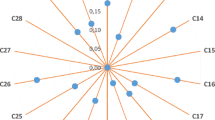Abstract
The purpose of this research is the evaluation of the simulator training available in the School of Engineers in the Merchant Marine Academy of Athens by the trainees’ aspect. It was performed during the spring semester of the academic year 2012–13 to the trainees of the Marine Simulator laboratory. The number of trainees who participated in the research was 116. The questionnaire technique was used for the research (anonymously). The questionnaire consisted of two parts: the educational that concerns the organization of the course, trainees’ evaluation, and the technical part that refers to the teaching design and use of the simulator in the course. Significant conclusions were extracted by the conduct of the research that will help for the better teaching design of the course and the system simulator. The recipient teachers and developers should make the appropriate adjustments in order for the course of marine simulation to be more interesting and to increase its efficiency. Moreover, IMO and the corresponding standards of training (STCW 2010) should include in future revisions, the findings of such researches so as those standards would be closer to the actual educational and professional needs of marine engineers.






Similar content being viewed by others
References
Bosma T, Lazakis I, Turan O, Muijskens CJ (2011) Enhancing Bridge Simulation Training Programmes with the Application of Maritime Aids for Emergency Responses. Safe Return to Port, Bridge Conference. Satakunta, Japan
Cross SJ (2003) Enhancing Competence Based Training and Assessment for Marine Engineers through the Realism of Virtual Presentation. International Conference on Marine Simulation and Ship Maneuverability MARSIM ’03, Kanazawa, Japan
Cross SJ (2011) International conference IMLA 19. Japan, Opatija, Quality MET through Quality Simulator Applications
Deniz C, Paksou A, Sarisakal MN (2002) Computer—based training for sea-going engineers. J Electr Electron 2(2):563–574
Forsman F, Dobbins T, Hill J, Brand T, MacKinnon S (2012) Exploiting simulation to enhance operational effectiveness and interoperability in littoral maritime operations, NATO Science and Technology Organization Modelling and Simulation Group, Paper 22. Stockholm, Sweden
IMO (1998). Engine room simulator - model course 2.07. IMO Publication
Kluj S (2003) Usability criteria for simulators applied in the maritime engineering education. World Trans on Eng and Technol Educ 2(3):445–448
Listewnik J, Wiewiora A (2003) Engine Room Simulator Applied as an Objective Examiner of Marine Engineers Skills and Knowledge. 4th IAMU Annual General Assembly, Alexandria
McCallum MC, Smith MW (2000) Evaluating simulators for use in assessment of mariner proficiencies. Proceedings of MARSIM 2000, International Conference on Marine Simulation and Ship Maneuverability. Orlando, Florida
Norcontrol (2000) Training and Evaluation Control TEC −2000. Manual Simulator. Kronsberg Norcontrol A.S.
Pallant J (2005) Survival manual: a step by step guide to data analysis using SPSS. Allen & Unwin, Crows Nest
Rasmussen JL, Dunlap WP (1991) Dealing with nonnormal data: parametric analysis of transformed data vs nonparametric analysis. Educ Psychol Meas 51:809–820
Razali NM, Wah YB (2011) Power comparisons of Shapiro-Wilk, Kolmogorov-Smirnov, Lilliefors and Anderson-Darling Tests. J Stat Model Analytics 2(1):21–33
SPSS (2011) Statistics package for social sciences. Version 20, Microsoft Corp., Chicago, IL, USA
Sugita H, Nakazawa T, Hu XF, Ishida T (2005) The intelligent tutoring system for an engine room simulator, 6th IAMU Annual General Assembly. Malmö, Sweden
Tsoukalas VD, Papachristos DA, Tsoumas NK, Mattheu EC (2008) Marine engineers’ training: educational assessment for an engine room simulator. WMU J Marit Aff 7(2):431–450
Author information
Authors and Affiliations
Corresponding author
Rights and permissions
About this article
Cite this article
Tsoukalas, V.D., Papachristos, D.A., Stefanakou, A.A. et al. Questionnaire assessment of training in a marine simulator. WMU J Marit Affairs 14, 293–312 (2015). https://doi.org/10.1007/s13437-014-0068-7
Received:
Accepted:
Published:
Issue Date:
DOI: https://doi.org/10.1007/s13437-014-0068-7




